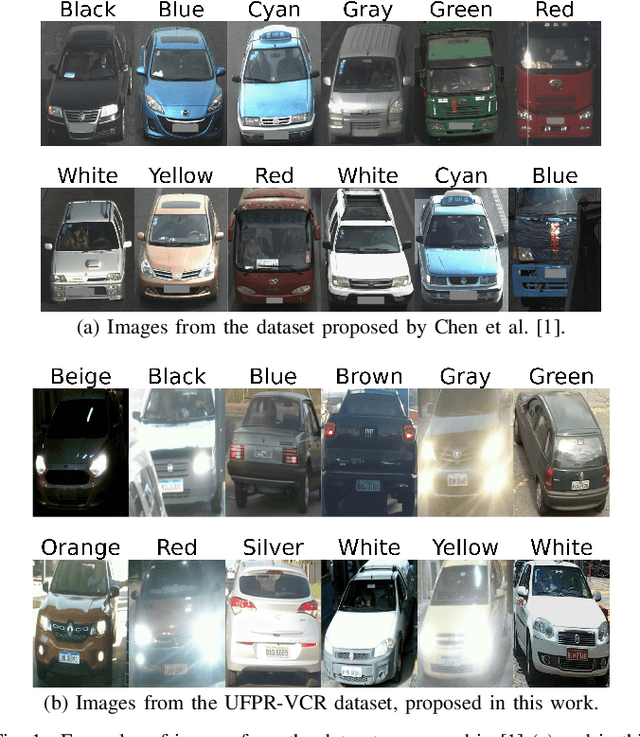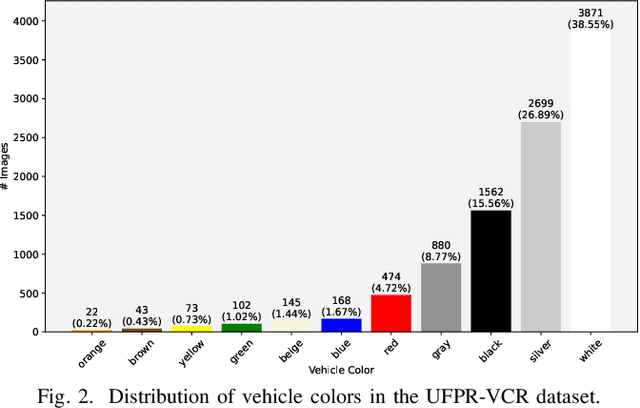Toward Enhancing Vehicle Color Recognition in Adverse Conditions: A Dataset and Benchmark
Paper and Code
Aug 21, 2024



Vehicle information recognition is crucial in various practical domains, particularly in criminal investigations. Vehicle Color Recognition (VCR) has garnered significant research interest because color is a visually distinguishable attribute of vehicles and is less affected by partial occlusion and changes in viewpoint. Despite the success of existing methods for this task, the relatively low complexity of the datasets used in the literature has been largely overlooked. This research addresses this gap by compiling a new dataset representing a more challenging VCR scenario. The images - sourced from six license plate recognition datasets - are categorized into eleven colors, and their annotations were validated using official vehicle registration information. We evaluate the performance of four deep learning models on a widely adopted dataset and our proposed dataset to establish a benchmark. The results demonstrate that our dataset poses greater difficulty for the tested models and highlights scenarios that require further exploration in VCR. Remarkably, nighttime scenes account for a significant portion of the errors made by the best-performing model. This research provides a foundation for future studies on VCR, while also offering valuable insights for the field of fine-grained vehicle classification.
 Add to Chrome
Add to Chrome Add to Firefox
Add to Firefox Add to Edge
Add to Edge